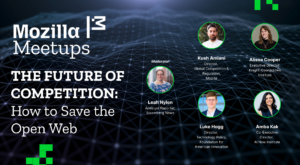Algorithms, machine learning, artificial intelligence, and other code-driven decisionmaking are increasingly hot topics for policymakers across the globe. The latest request for information came from the House of Commons Science and Technology Select Committee of the UK Parliament – a cross party body holding an inquiry into the use of algorithms in public and business decision making. Last week, Mozilla submitted comments on how we think about the intersection of algorithms and policy.
Our submission to the inquiry has a few main points:
- This is a new and evolving area in which even the terms we use to discuss the topic are not fixed. The committee should spend time working out how to frame good questions, as well as looking for answers.
- “Algorithm” is too general a concept to reason about. As well as having different uses, algorithms can be of several different types (outlined in our submission), and operated by either government or private sector organizations; those factors should have a significant effect on how we view them. Furthermore, the context of the decision-making is, in many cases, at least as important than the algorithm itself.
- Algorithms and data are inherently intertwined when there is machine learning; the data shapes the decision-making process. Just talking about one without the other will give an incomplete picture, and yet ideas of “data transparency” and “algorithm transparency” have very different issues and challenges.
- We believe that “accountability” rather than “transparency” is the best frame in which to consider algorithmic decision-making. While asking to “show me how it’s done” is an appealing idea in principle, in practice it is often very difficult, and ultimately not as helpful as may seem in understanding and addressing problems that arise.
Going forward, we’ll keep iterating on these points. There’s a broad set of policy questions that no one really has answers for yet – from the responsibility of a company to the changing cultural norms, what fairness means, and around delegating decisions to automation. A growing community of academics, policymakers, and technologists are thinking about how to make algorithmic decisionmaking better – and we’re going to be a part of that discussion.










